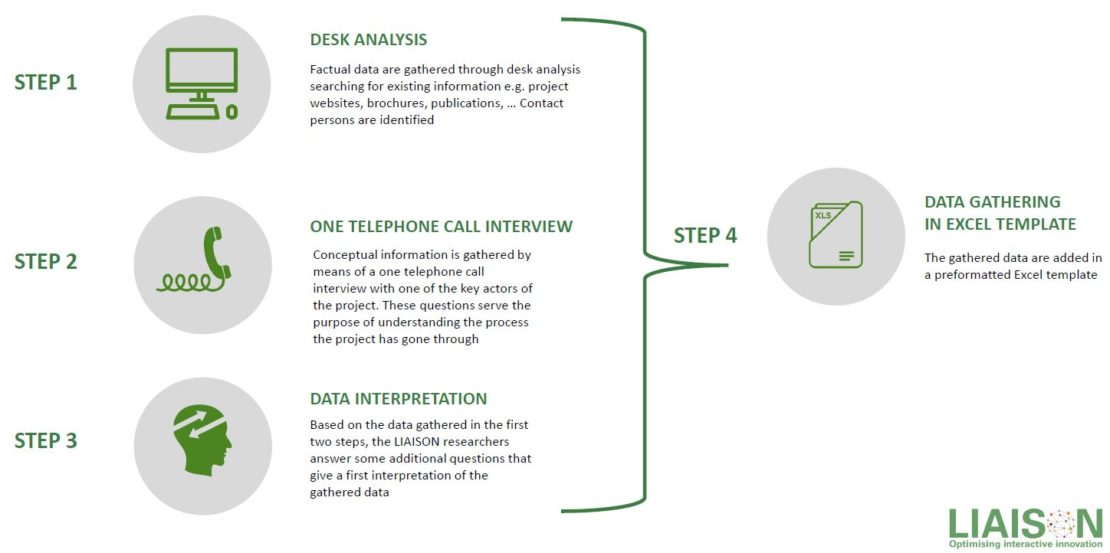‘Light-touch’ review
Identifying, collecting and succinctly reviewing current examples of working in partnership for innovation in projects, networks and other initiatives
KEY TESTS
The first phase of the field work was to review the process of innovation co-creation in a broad range of multi-actor projects, networks and initiatives. To be eligible for inclusion in our research, the projects had to comply with five ‘key tests’, namely:
- Direct relevance of the topic of the project (i.e. competitive, sustainable and climate-smart agriculture, forestry and related value chains);
- Demonstration of a multi-actor partnership consisting of at least two or more entities;
- A significant level of engagement of practitioners (farmers, foresters or their organisations should preferably be a full partner of the consortium);
- A clear intention within the partnership to innovate;
- The quality of the project description, to allow us to judge whether the activities are likely to be genuinely ‘insightful’.
TYPOLOGY
Of the 200 examples studied, 162 were ‘projects’ according to the formal definition of the term and 38 were other forms of cooperation (such as networks). Of the former, 87 were funded in the frame of EIP-Agri, consisting of 50 Horizon2020 projects and 37 Operational Groups. Also included were examples of Interreg, LIFE and EU Rural Development Programme projects as well as nationally-, regionally- and privately-funded examples.
ANALYSIS, RESULTS AND NEXT STEPS
The analysis took the form of a desk survey of published materials plus a ‘one telephone call’ semi-structured interview with a key actor from each case, plus post-interview reflections from the LIAISON partner.
From the results of the ‘light-touch’ reviews, a conceptual typology has been developed. The overarching concept or dependent variable is ‘efficency of innovation co-creation by a multi-actor partnership’ (in agriculture, forestry and related sectors).
The two dimensions of this overarching concept are ‘structural components of the organisational innovation system’ and ‘attitude towards interaction’. It should be noted that a typology is not a classification, but rather a theory that can be subjected to rigorous empirical testing. The LIAISON typology will be tested in the 32 case studies in WP4.

